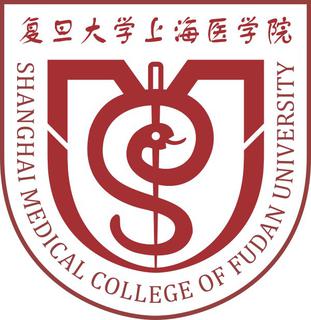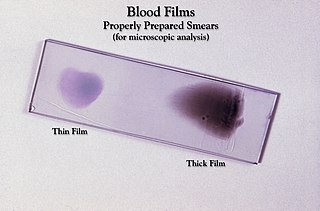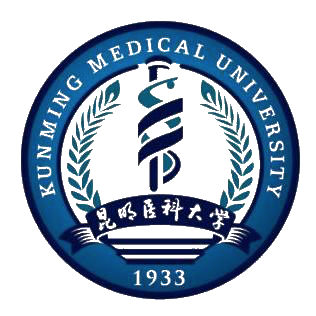This article contains too many or overly lengthy quotations for an encyclopedic entry.(March 2020) |
Masahide Sasaki was a Japanese chemist. He developed the first fully-automated laboratory, and he popularized this innovation internationally.
This article contains too many or overly lengthy quotations for an encyclopedic entry.(March 2020) |
Masahide Sasaki was a Japanese chemist. He developed the first fully-automated laboratory, and he popularized this innovation internationally.
Masahide was born in Yamaguchi Prefecture of Japan on August 27, 1933. He married his wife, Tokyo, and had three children, Mika, Kyoko, and Masanori. He died of cancer on September 23, 2005. [1]
As noted in his obituary in Clinical Chemistry , Masahide "graduated from Yamaguchi Medical School in 1961. During 1965, he served as an internist for the Hiroshima Atomic Bomb Casualty Committee. Several years later, in 1967, he was appointed the Chief of the Clinical Chemistry Department at Kawasaki Hospital. In 1970, he did a fellowship in the United States at the Michael Reese Hospital in Chicago, IL, which gave him exposure to the US medical system. Two years later he became an Assistant Professor of Internal Medicine at Kawasaki Medical School and rose quickly in the academic ranks to become a Full Professor of Laboratory Diagnosis in 1976 and, ultimately, Vice President of Kawasaki Paramedical College." He was appointed Professor and Director of the Department of the Clinical Laboratory at Kochi Medical School, Kochi, Japan in 1981. There, he developed his automation system. [1]
Masahide published many papers between 1981 and 1999, the most notable of which was a monograph on laboratory automation sponsored by the A&T Corporation. [1]
Masahide provided the first and most prominent example of a totally automated laboratory. [2]

Clinical chemistry is a division in medical laboratory sciences focusing on qualitative tests of important compounds, referred to as analytes or markers, in bodily fluids and tissues using analytical techniques and specialized instruments. This interdisciplinary field includes knowledge from medicine, biology, chemistry, biomedical engineering, informatics, and an applied form of biochemistry.

An automated analyser is a medical laboratory instrument designed to measure various substances and other characteristics in a number of biological samples quickly, with minimal human assistance. These measured properties of blood and other fluids may be useful in the diagnosis of disease.

Laboratory robotics is the act of using robots in biology, chemistry or engineering labs. For example, pharmaceutical companies employ robots to move biological or chemical samples around to synthesize novel chemical entities or to test pharmaceutical value of existing chemical matter. Advanced laboratory robotics can be used to completely automate the process of science, as in the Robot Scientist project.
Chifeng University (赤峰学院) is a public university formed by the combination of Chifeng Normal College of Nationalities and other four academies. It was approved by the Ministry of Education of the People's Republic of China in 2003. It is in the city of Chifeng, the birthplace of the Hong Shan cultures. The university has 24 colleges or departments

The Tufts University School of Medicine is the medical school of Tufts University, a private research university in Massachusetts. It was established in 1893 and is located on the university's health sciences campus in downtown Boston. It has clinical affiliations with numerous doctors and researchers in the United States and around the world, as well as with its affiliated hospitals in both Massachusetts, and Maine.

Albert Hewett Coons was an American physician, pathologist, and immunologist. He was the first person to conceptualize and develop immunofluorescent techniques for labeling antibodies in the early 1940s.

The Theodor Bilharz Research Institute is located in Giza, Egypt.

The Shanghai Medical College, Fudan University, formerly the independent Shanghai Medical University (SHMU), is one of the oldest and most prestigious medical schools in China. Clinical medicine of the Shanghai Medical College of Fudan University is consistently ranked among the top three medical schools in China and #45 globally by Times Higher Education World University Rankings as of 2022. Its "Clinical Medicine" also ranked #73 globally by the U.S. News & World Report globally.

Clinical pathology is a medical specialty that is concerned with the diagnosis of disease based on the laboratory analysis of bodily fluids, such as blood, urine, and tissue homogenates or extracts using the tools of chemistry, microbiology, hematology, molecular pathology, and Immunohaematology. This specialty requires a medical residency.

A medical laboratory scientist (MLS) or clinical laboratory scientist (CLS) or medical technologist (MT) performs diagnostic testing of blood and body fluids in clinical laboratories. The scope of a medical laboratory scientist's work begins with the receipt of patient or client specimens and terminates with the delivery of test results to physicians and other healthcare providers. The utility of clinical diagnostic testing relies squarely on the validity of test methodology. To this end, much of the work done by medical laboratory scientists involves ensuring specimen quality, interpreting test results, data-logging, testing control products, performing calibration, maintenance, validation, and troubleshooting of instrumentation as well as performing statistical analyses to verify the accuracy and repeatability of testing. Medical laboratory scientists may also assist healthcare providers with test selection and specimen collection and are responsible for prompt verbal delivery of critical lab results. Medical Laboratory Scientists in healthcare settings also play an important role in clinical diagnosis. An estimated 70% of medical decisions are based on laboratory test results and MLS contributions affect 95% of a health system's costs.

Laboratory automation is a multi-disciplinary strategy to research, develop, optimize and capitalize on technologies in the laboratory that enable new and improved processes. Laboratory automation professionals are academic, commercial and government researchers, scientists and engineers who conduct research and develop new technologies to increase productivity, elevate experimental data quality, reduce lab process cycle times, or enable experimentation that otherwise would be impossible.

A medical laboratory or clinical laboratory is a laboratory where tests are conducted out on clinical specimens to obtain information about the health of a patient to aid in diagnosis, treatment, and prevention of disease. Clinical medical laboratories are an example of applied science, as opposed to research laboratories that focus on basic science, such as found in some academic institutions.

Otto Knut Olof Folin was a Swedish-born American chemist who is best known for his groundbreaking work at Harvard University on practical micromethods for the determination of the constituents of protein-free blood filtrates and the discovery of creatine phosphate in muscles.

Rodney Smith Markin, is an American pathologist and authority in the field of laboratory automation. In 1993, he designed and created one of the world's first automated clinical laboratory specimen, device and analyzer management systems. In the mid-1990s, he chaired a standards group called the Clinical Testing Automation Standards Steering Committee (CTASSC) of the American Association for Clinical Chemistry, which later evolved into an area committee of the Clinical and Laboratory Standards Institute.

Kimishige "Kimi" Ishizaka was a Japanese immunologist who, with his wife Teruko Ishizaka, discovered the antibody class Immunoglobulin E (IgE) in 1966–1967. Their work was regarded as a major breakthrough in the understanding of allergy. He was awarded the 1973 Gairdner Foundation International Award and the 2000 Japan Prize for his work in immunology.
Marc Van Ranst is a Belgian public health doctor and Professor of Virology at the Katholieke Universiteit Leuven and the Rega Institute for Medical Research. On 1 May 2007, he was appointed as Interministerial comissionar by the Belgian federal government to prepare Belgium for an influenza pandemic.

Kunming Medical University, previously known as Kunming Medical College, is a medical school located in Kunming City, Yunnan Province, China.

Chengdu Medical College is a government-run medical school in Chengdu, China. It occupies two campuses, Tianhui and Xindu, covering a total area of 1500 acres, with more than 13,500 full-time students and 914 full-time teachers(480 professors). It offers full-time education from undergraduate to master's degree level.
Norbert Gleicher is an American obstetrician-gynecologist active in obstetrical practice, in vitro fertilization, reproductive endocrinology, and reproductive immunology. He is a fellow of the American College of Obstetricians and Gynecologists (FACOG) and the American College of Surgeons (ACS) and currently serves as president, medical director and chief scientist of the Center for Human Reproduction (CHR) in New York City, a clinical fertility center that he founded in 1981. Simultaneously, he is President of the Foundation for Reproductive Medicine, a not-for-profit research foundation. Gleicher maintains additional academic appointments at Rockefeller University, and Medical University of Vienna.
Albert Balows was an American clinical microbiologist. He was the president of the American Society for Microbiology in 1981.